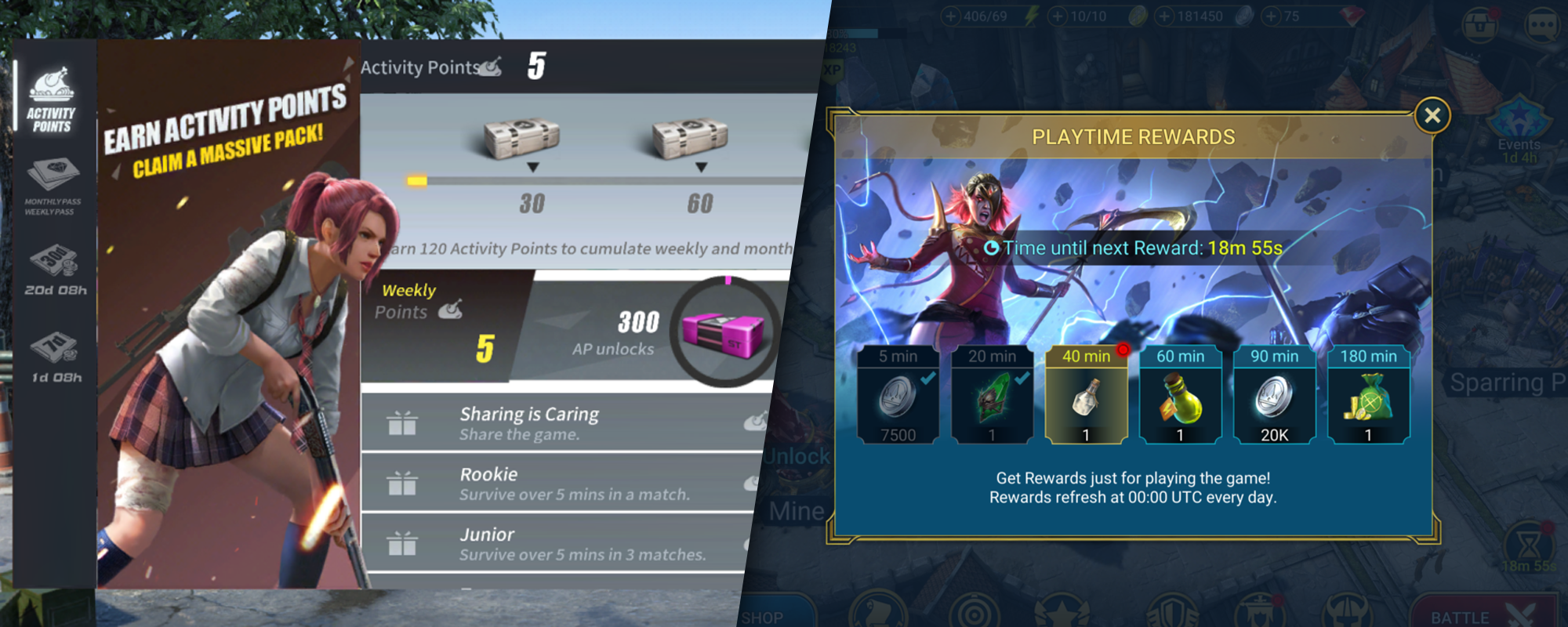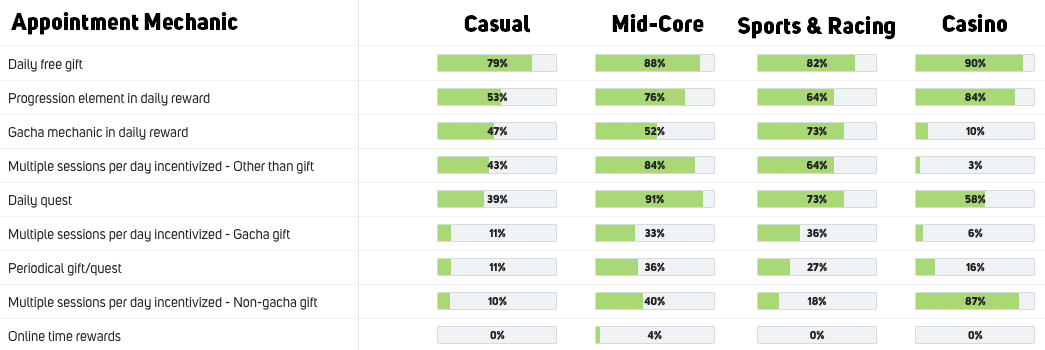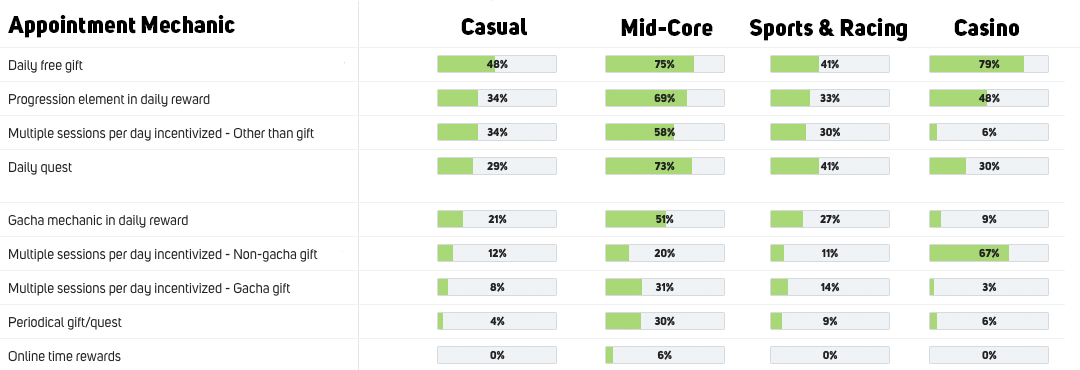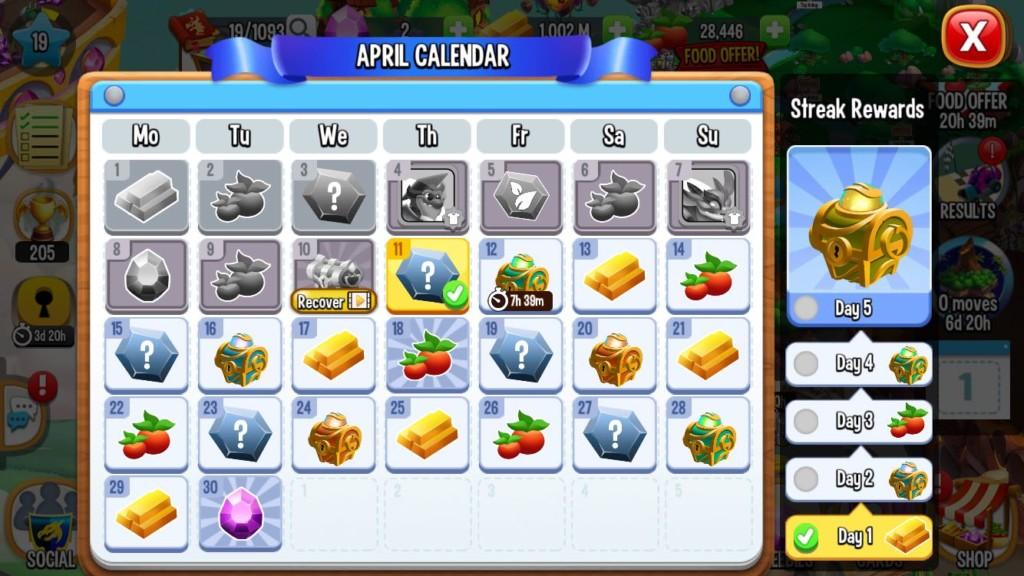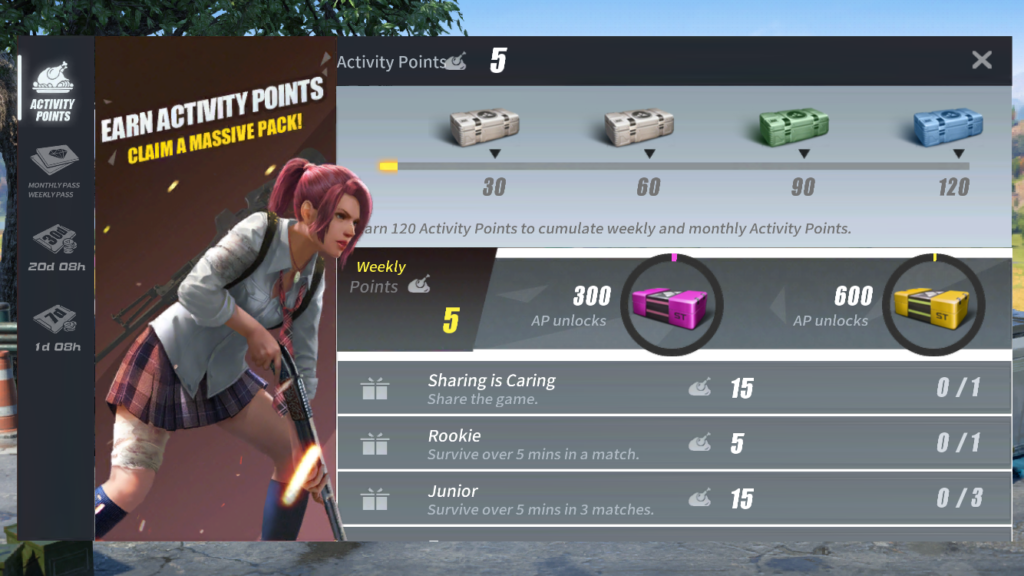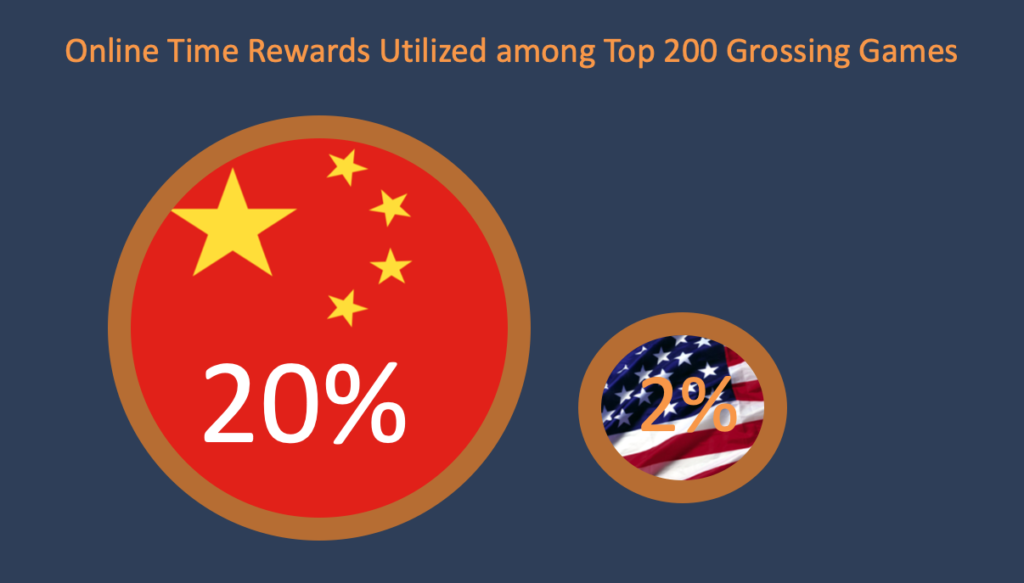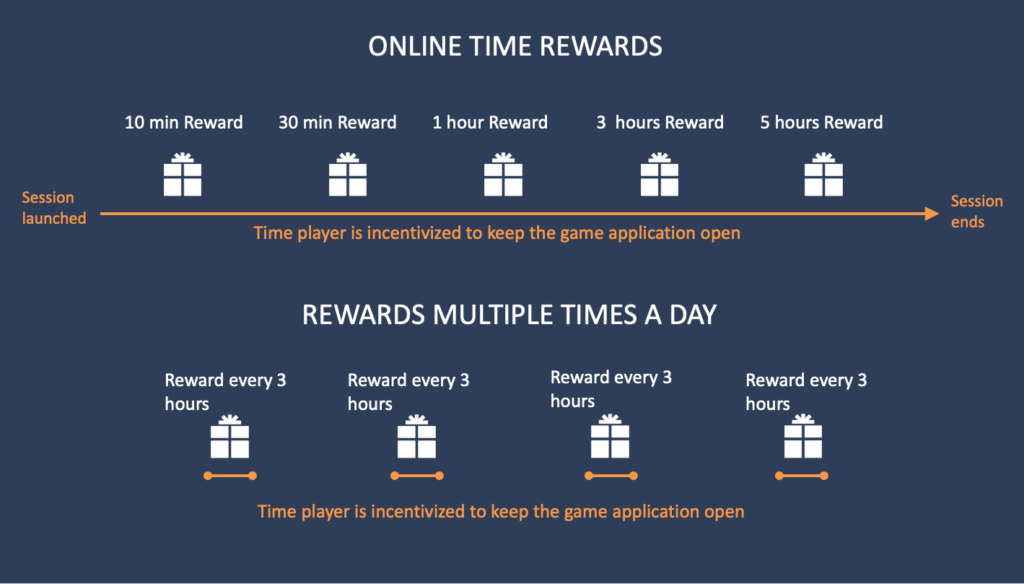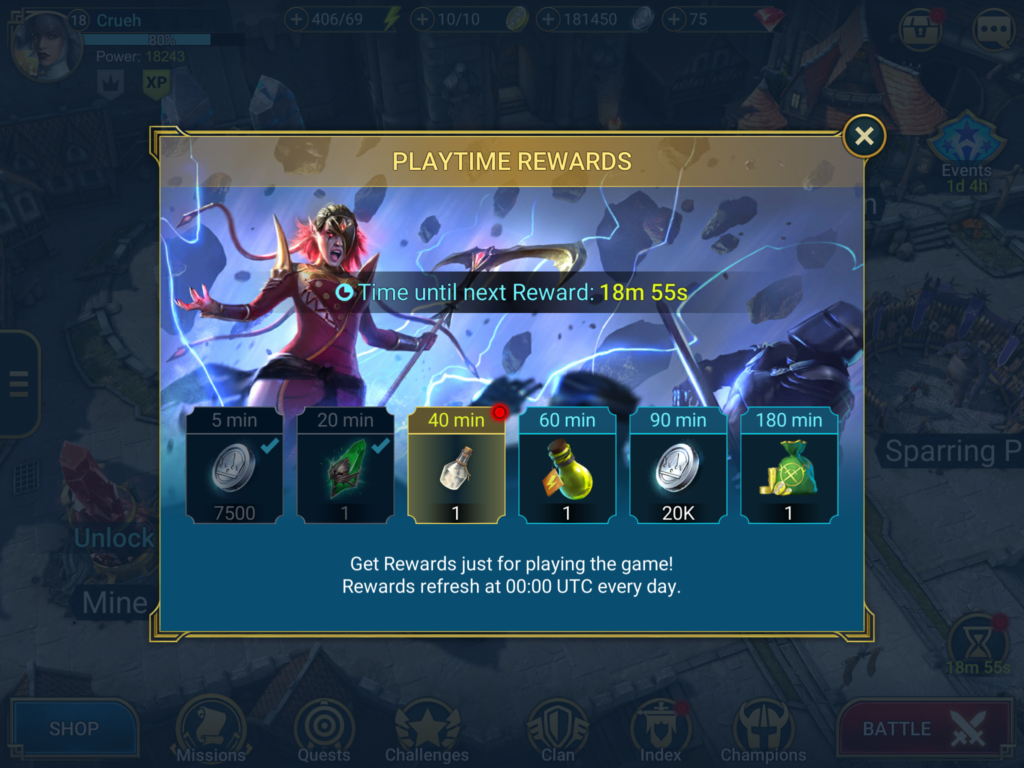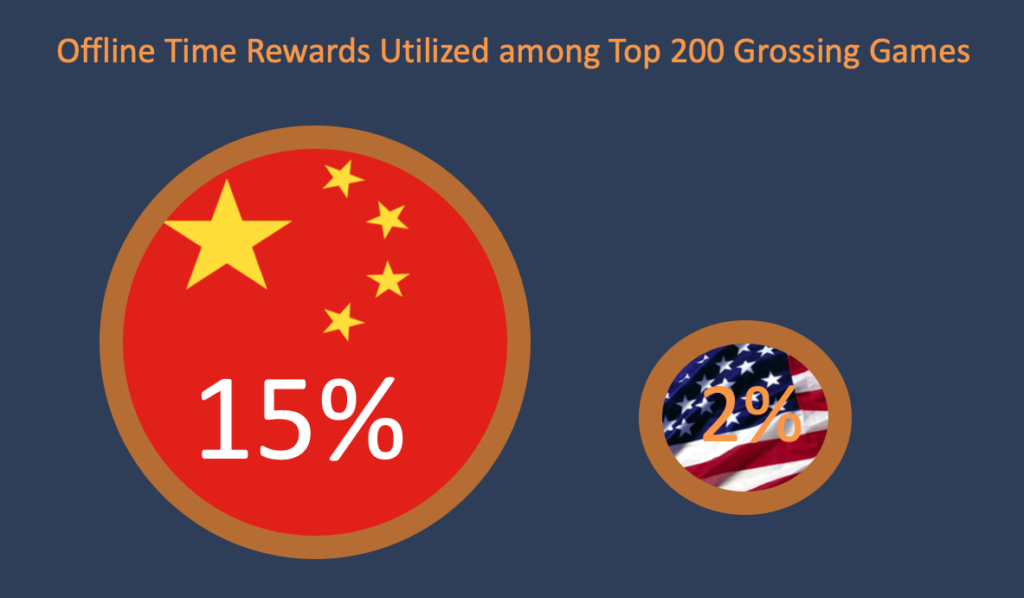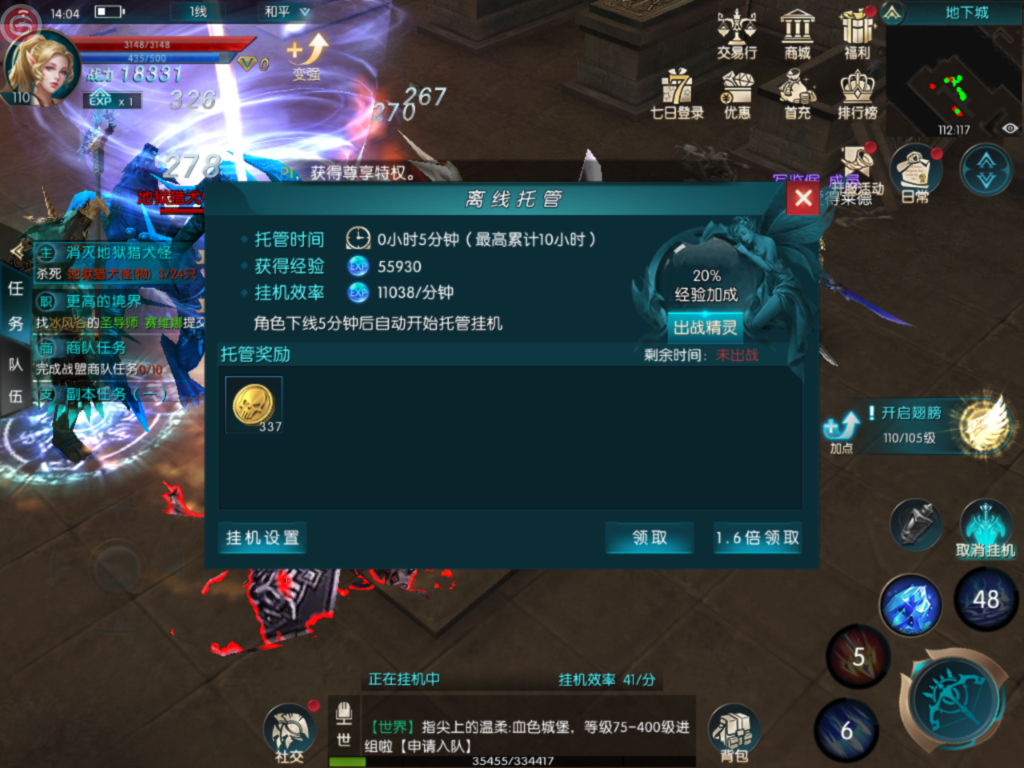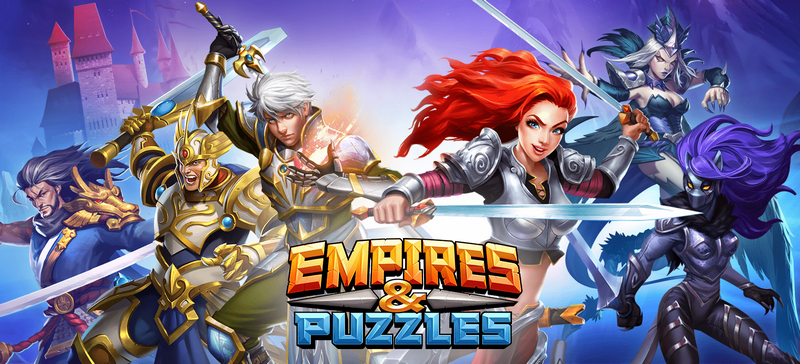We all know how important and challenging it’s to create and expand your player base and retain it. Some games re-engage their players by facilitating communal systems, such as guilds, to enforce social commitments to the game. Others use exclusive limited-time events and content to instigate FOMO among players. Then some games rely on publishing more and more content, levels, and story to give their players a reason to come back.
Here at GameRefinery, we offer data and actionable insights on all of the ways mentioned above to boost retention. But in this blog post, we’re focusing on yet another set of tools that can help you create compelling incentives for players to revisit your game: appointment mechanics.
There are many things to consider when building an appointment loop, including:
- Time interval: does the mechanic refresh on an hourly, daily, weekly, or monthly basis?
- Level of involvement: do you hand in rewards directly (a gift), or do you require completed tasks?
- Progression: is there a progression element included, e.g., a daily reward login calendar?
- Randomness level: Can players expect to know what they get as rewards, or is there a gacha (loot-box) mechanic involved?
First, we’ll take a look at what data tells us about the popularity of these appointment mechanic components in different game categories. To be more specific, we’ll take a high-level look at the top 200 grossing games (US market, iOS) in Casual, Mid-Core, Sports & Racing, and Casino and identify similarities and differences between these categories, as well as which features appear to differentiate the best performing games from the rest. If you’re interested in finding out more about how we categorize games here at GameRefinery, please make sure to check out this blog post on the topic.
Finally, we’ll also go over some examples of how different kinds of games have implemented appointment mechanics.
So without further a due, let’s get into the topic!
Appointment Mechanics Category Comparison: Casual, Mid-Core, Sports & Racing and Casino
Popularity in Top 200 Grossing (US iOS Market)
Popularity Outside Top 200 Grossing (US iOS Market)
Data on appointment mechanics among Casual, Mid-Core, Sports & Racing and Casino games in the US
From here, we can make a couple of interesting observations:
- Daily gift systems are common in all of the categories and differentiating the best performers from the rest.
- Having a task/quest layer in the appointment mechanic is quite a popular choice among Mid-Core and Sports & Racing games, but not so much in Casual and Casino games.
- Casino games with their chip handouts stand out when it comes to rewarding players multiple times a day.
- A time interval of more than a day (=e.g. 48h gacha or weekly quest system) is practically non-existent among Casual and Casino games but somewhat prevalent within Mid-Core.
- Online time rewards – a rather popular feature in China – are rarely used in any category.
Implementation Snapshots
Let’s then take a quick look at some exciting ways to implement an appointment mechanic and a couple of new feature inspirations from Asian markets.
Daily reward with a progression twist: Dragon City Mobile’s login calendar
Adding different kinds of progression elements to your daily reward system is a great way to boost retention. Dragon City Mobile has a login calendar that gives players better rewards based on the number of consecutive days they have managed to log in.
Worth noting:
- The streak rewards system facilitates another set of shorter-term goals.
- The “recover” function allows players to reclaim a reward from a previous day they missed by watching a short ad. By the way, this type of feature is something that can also be monetized by switching ads to an in-game currency purchase…
Periodical Rewards: Weekly Quests in Rules of Survival
NetEase’s Battle Royale Rules of Survival has a weekly (and monthly) quest system that gives players rewards once they meet certain activity point thresholds. The more tasks a player completes, the more activity points they get, which results in better rewards. The tasks, rewards, and collected activity points refresh each week.
Online time Rewards
A common sight in Chinese RPGs, online time rewards are all about giving out rewards based on how long a player keeps the application open and stays in the game. Therefore, it’s not enough to open the game a few times a day and collect rewards; instead, players need to keep the game open.
Online time rewards give a much stronger incentive to keep on playing than systems that only require a “reward pick-up.”
You can often see a visible timer somewhere in the main menu or an easily accessible location so that players can check how long they need to continue playing before unlocking the next reward threshold. The mechanic and rewards are usually refreshed daily.
Online time rewards in Raid: Shadow Legends
All in all, online time rewards are an excellent way to increase your players’ session lengths.
Offline time rewards
Rewarding your players for not interacting with your game can be counter-intuitive, but the idea here is to reward players when they come back to the game, based on their time offline. For example, in many Chinese MMOs, players can receive offline experience based on the time they were off. Often, games have a time cap on the amount of XP you can gain from a single session to ensure that players check-in regularly. Here developers pull on the same strings as in games with a building/resource gathering-meta, where the stone quarries and lumber mills frequently call for players to clean up their stockpiles.
Here’s MU Miracle’s (奇迹最强者) offline XP system
To Wrap it up
Finally, here’s a short recap of this posts main points:
- Appointment mechanics are a great way to make players want to keep coming back to your game.
- They are relatively easy to implement across all genres, from MOBAs to endless runners.
- When it comes to appointment mechanics in top-performing Casual, Mid-Core, Sports & Racing, and Casino games in the US, there are clear similarities (daily rewards) and differences (quest layer, periodical rewards, multiple rewards per day).
- Inspiration for fresh takes on appointment mechanics can be sought, e.g., from China. Watch out for online and offline rewards!
In this blog post, we took a high-level look to illustrate some differences that stood out in a single market. However, you can do the same with a more targeted approach by digging deep into sub-genres (e.g., Match3s vs. ARPGs) or compare different markets (e.g., the US vs. Japan) to find answers to questions such as:
A) Which appointment mechanics are most used and most differentiating in MY game genre?
B) What different ways are there to implement these features in MY game?
C) Are my competitors utilizing these features? If so, how have THEYplemented them?
Make sure to sign up for our free layer of the service to find out more!
If you enjoyed reading this post, here are a few more you should definitely check out:

